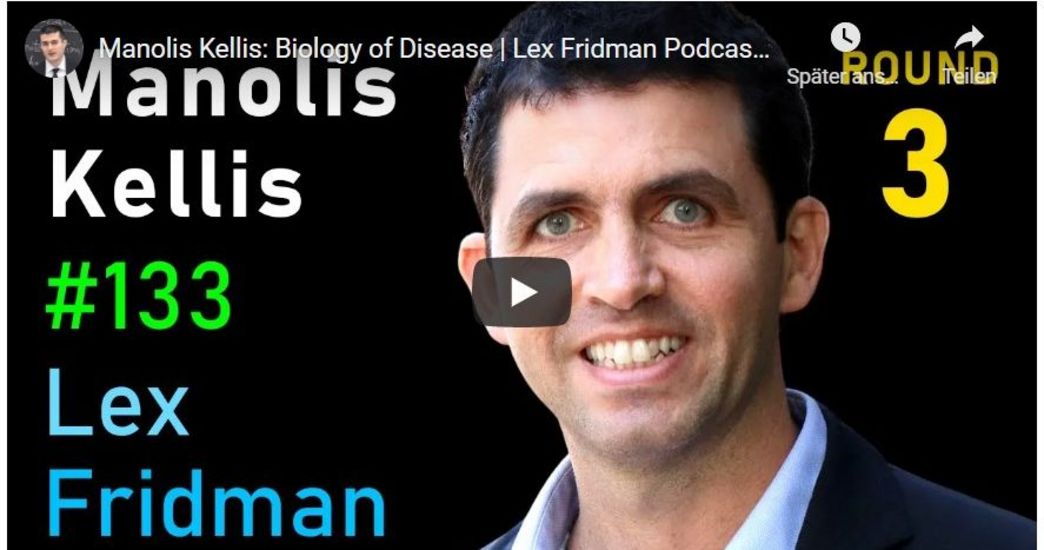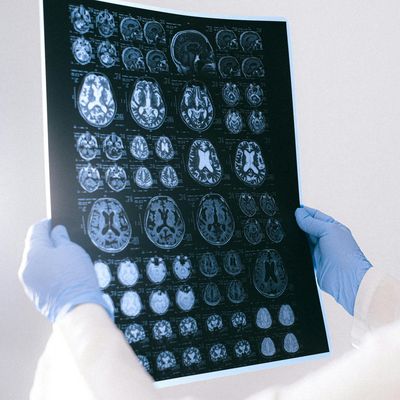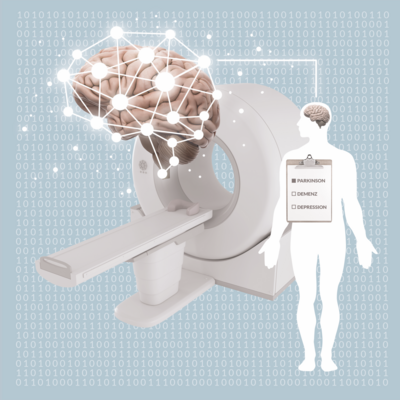Biology of diseases

A precise understanding of the human genome can help to better understand the development of diseases. Manolis Kellis from MIT explains how AI can be used to treat some diseases in the future. A video podcast.
Research into the human genome is being carried out all over the world - also with different focuses at different Helmholtz centers. There is no way around the use of artificial intelligence technologies in current genome research - that is certain. In a conversation with AI expert Lex Fridman, Manolis Kellis from MIT provides exciting insights into the topic and also explains, among other things, why overarching research structures are necessary, especially for comprehensive research into genetic causes of disease.
Click here to listen to the podcast.
Manolis Kellis is a professor of computer science at the Massachusetts Institute of Technology (MIT) in the Computational Biology Division and a member of the Broad Institute of MIT and Harvard. He is head of the Computational Biology Group at MIT and Principal Investigator in the Computer Science and Artificial Intelligence Lab (CSAIL) at MIT.
Kellis is known for his contributions to genomics, human genetics, epigenomics, gene regulation, and genome evolution. Among other projects, he led the NIH Roadmap Epigenomics Project to create a comprehensive map of the human epigenome, and many other projects to characterize genes, identify the noncoding elements and circuits of the human genome, and model organisms. A major focus of his work is understanding the impact of genetic variation on human diseases, including diabetes, Alzheimer's disease, schizophrenia, and cancer.
Lex Fridman is an AI researcher working on autonomous vehicles, human-robot interaction, and machine learning at MIT. In his podcasts, he talks to well-known personalities about current issues and developments in scientific research: His interview guests include scientists such as Roger Penrose, Noam Chomsky, Richard Dawkins, but also Jack Dorsey and Elon Musk.
Content:
- 00:00 - Introduction
- 08:05 - The molecular basis of human diseases
- 32:04 - The most deadly diseases
- 37:47 - Genetic components of diseases
- 46:38 - Genetic understanding of diseases
- 1:02:25 - A unified theory of human disease
- 1:08:26 - Circuits of the genome
- 1:33:29 - CRISPR
- 1:45:06 - mitochondria
- 1:53:10 - The future of biological research
- 2:22:46 - The genetic circuits of disease.
(On some podcast players, you should be able to click on the time markers to jump to the appropriate section).










